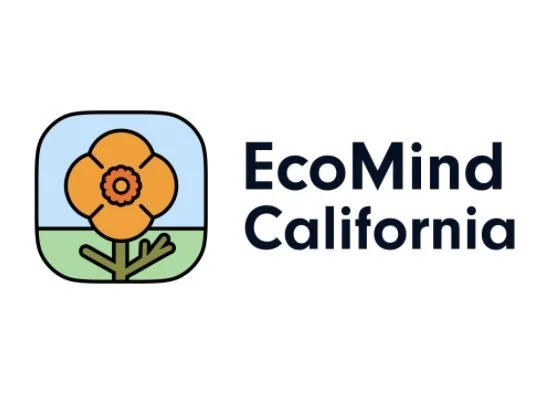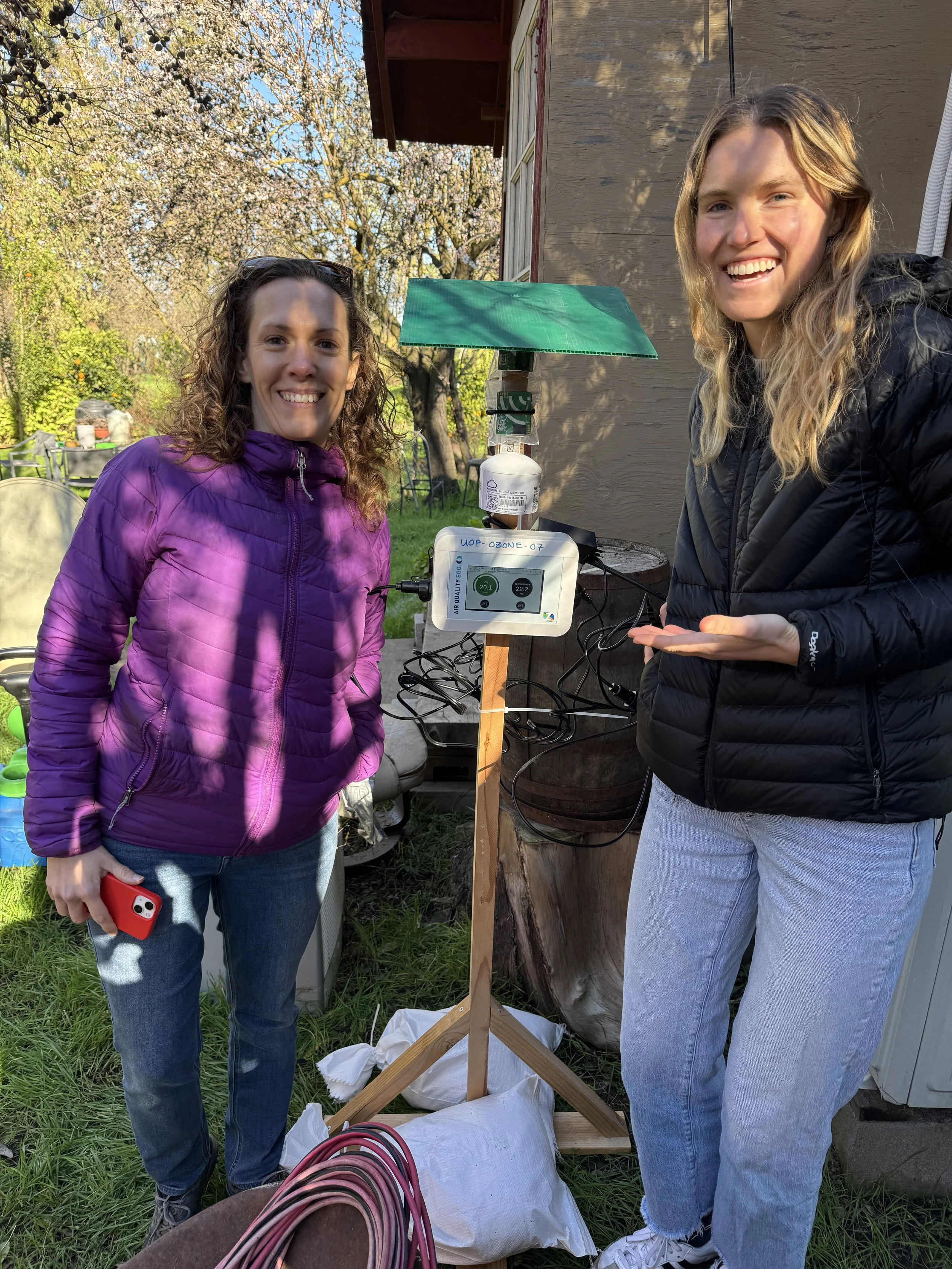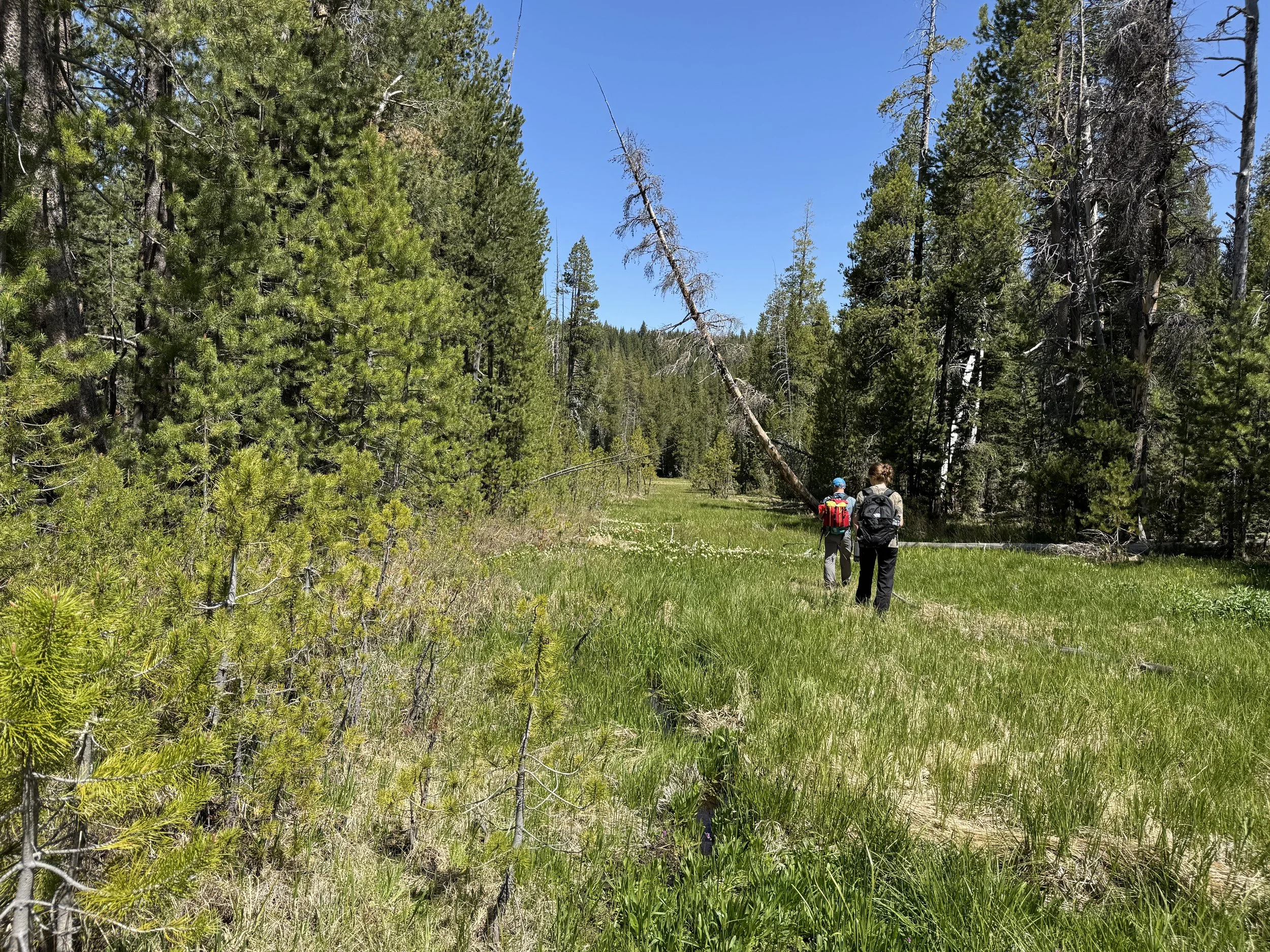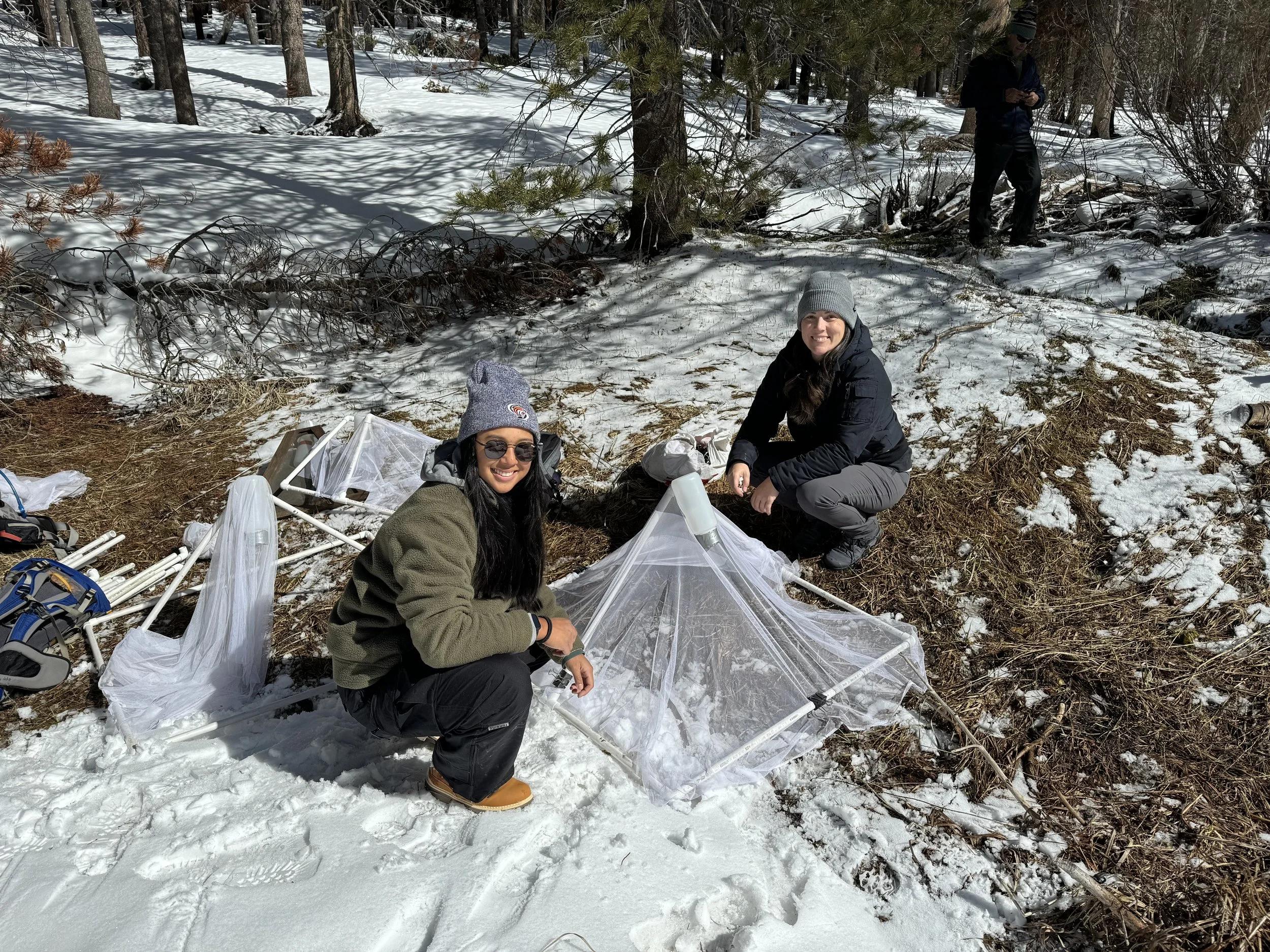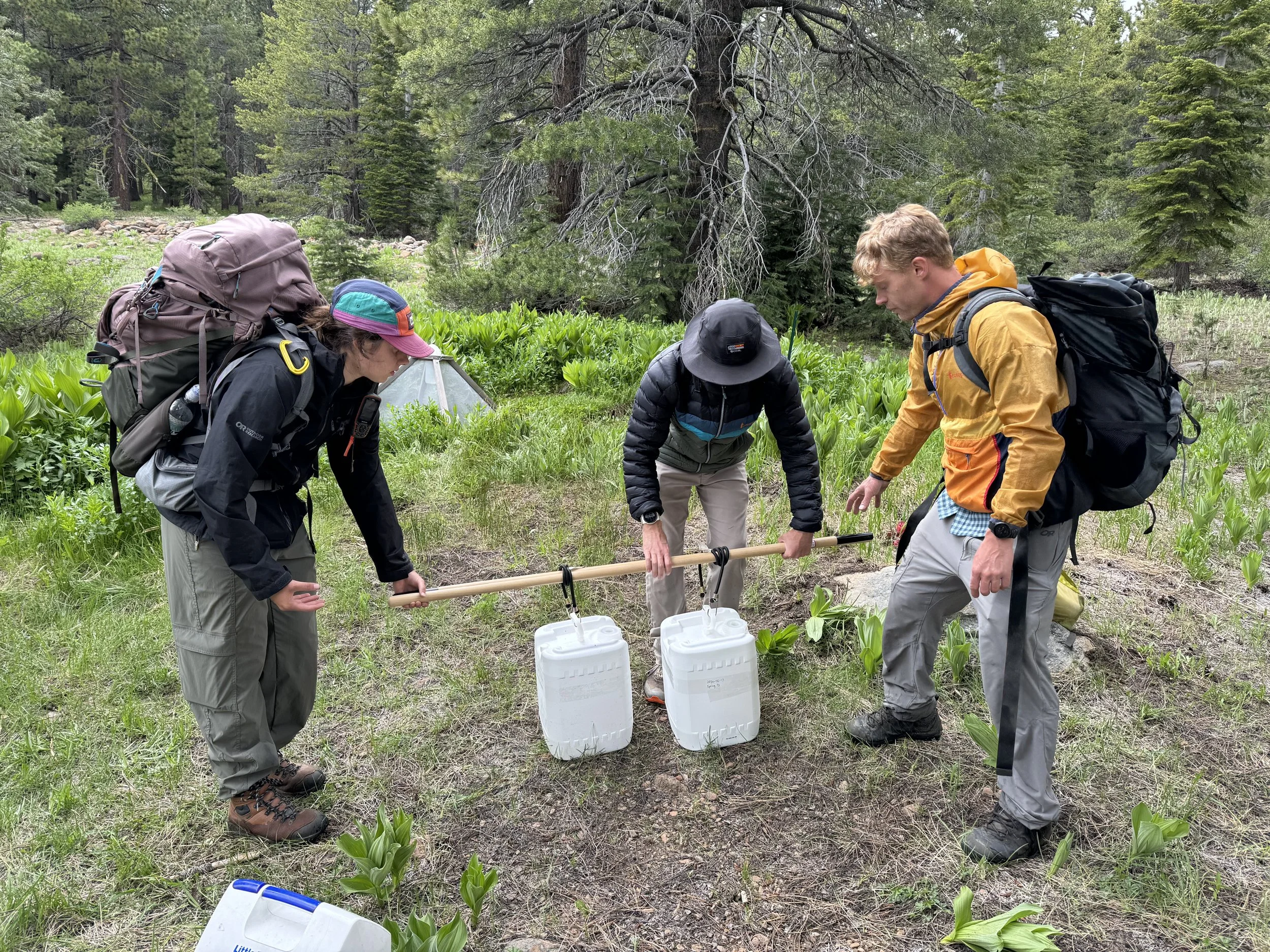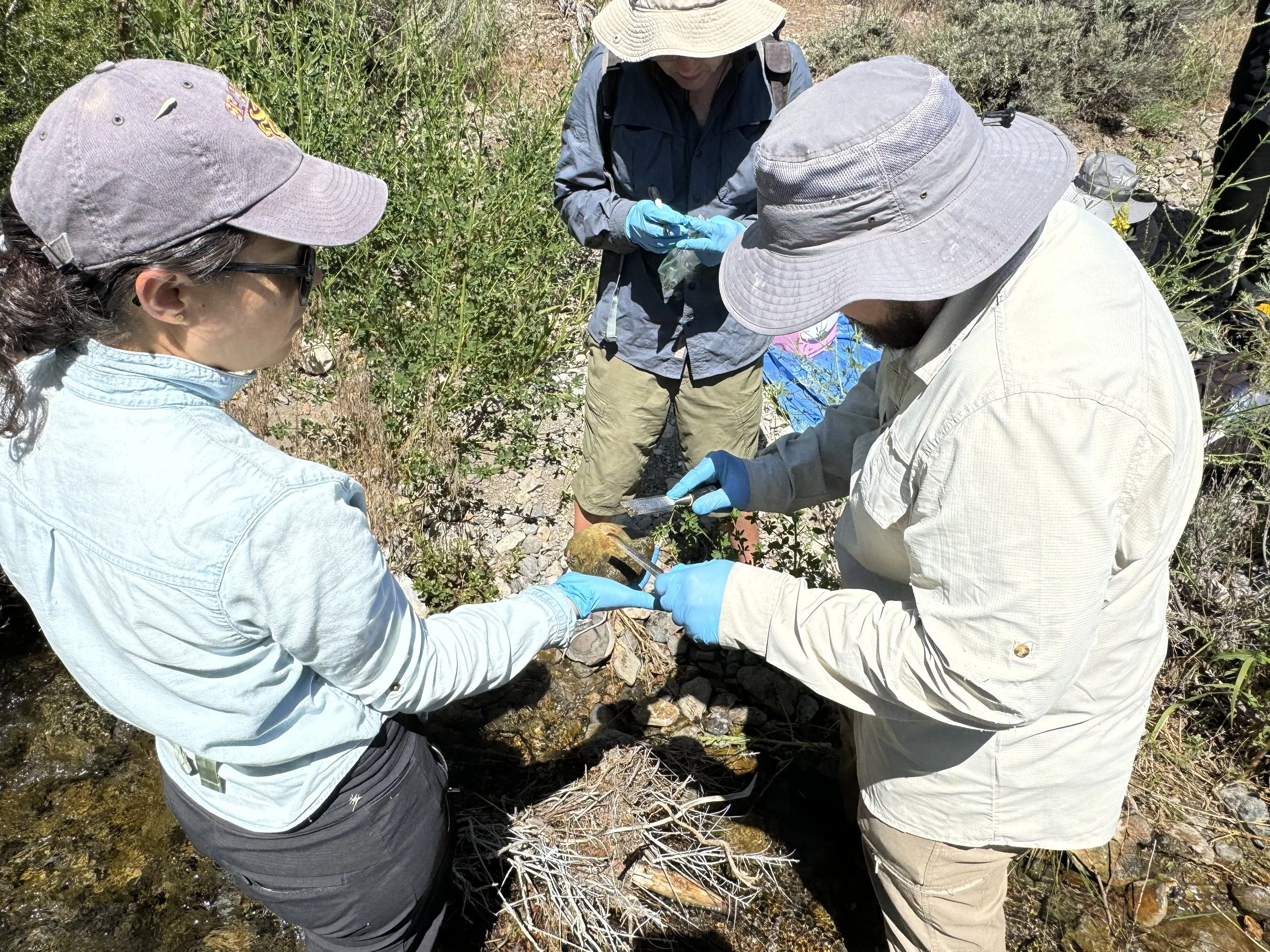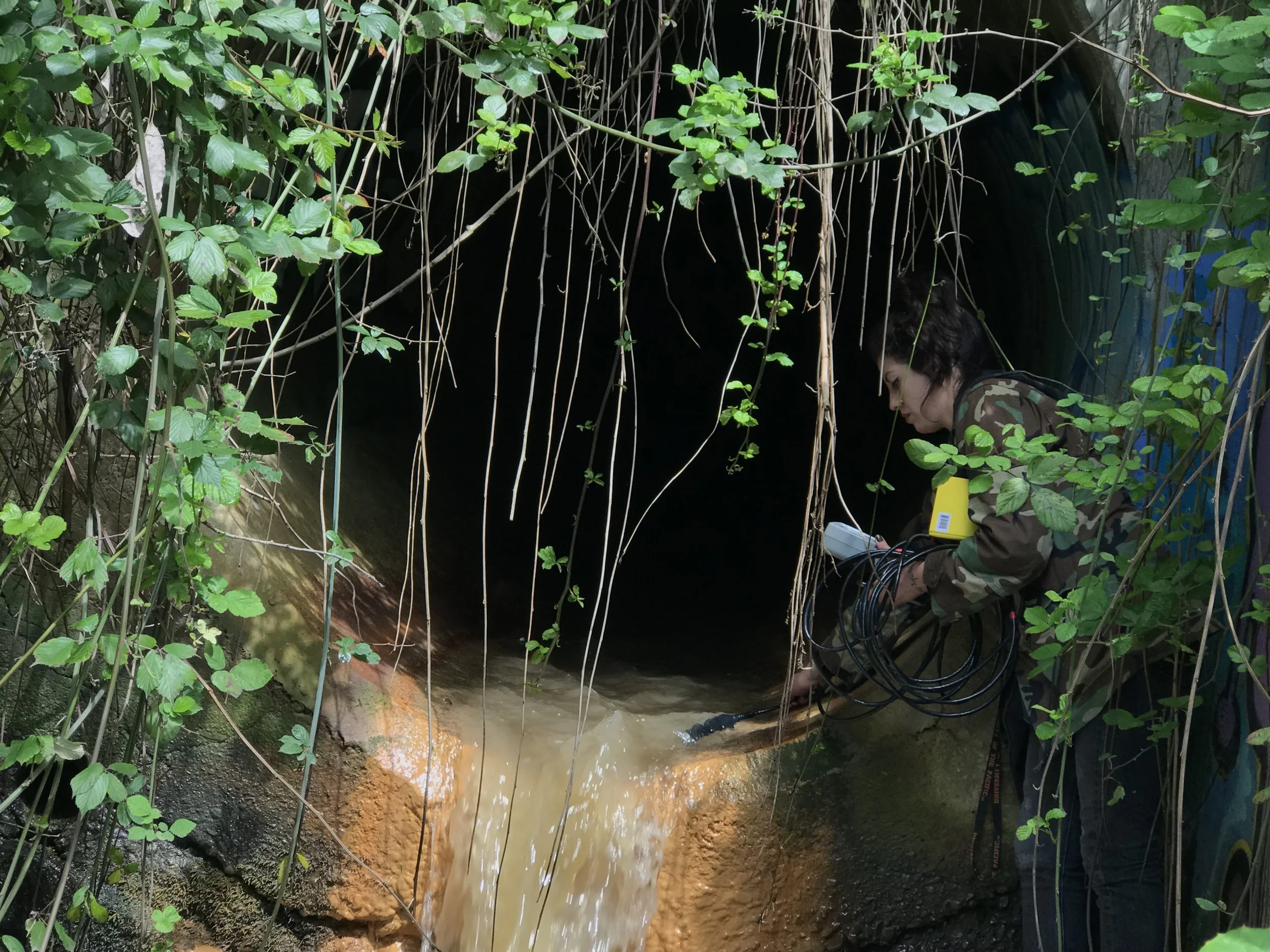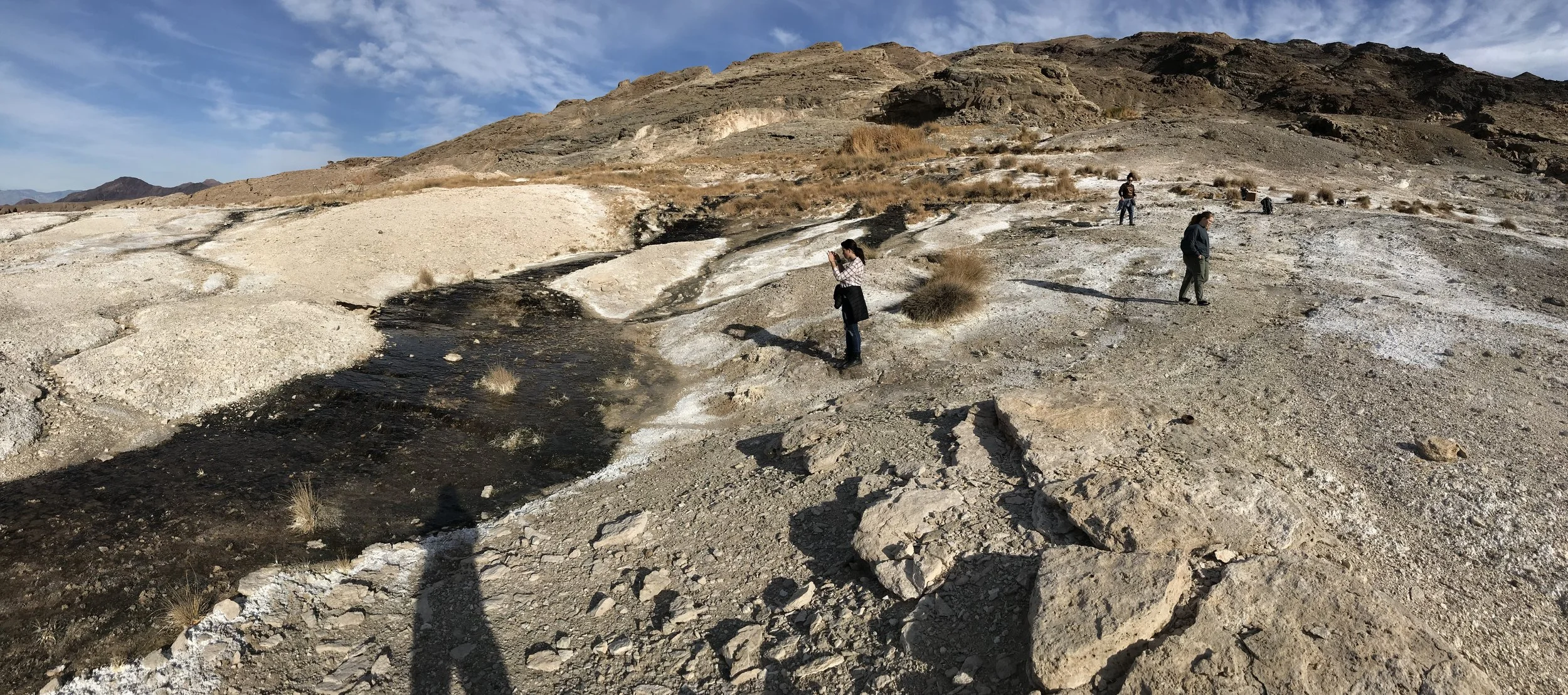
Research: Working together, asking questions and finding answers
Current projects from the Rademacher Lab
EcoMind California: Connections between the natural world and mental wellbeing
EcoMind-California is a mobile app designed in collaboration with King’s College and Nomad Projects to support exploration of the connections between the natural world and mental wellbeing. Join us as we reflect on our time spent outdoors and the impact it has on our lives. Please click here to learn more about the study and find out how you can participate.
Project Collaborators:
Urban Communities & Urban Canopies: Climate, Equity & Environmental Justice
We are collaborating with community members on a study investigating heat, air quality, and bird activity in Stockton neighborhoods. The study has two components: 1) deploying backyard sensors (like the ones pictured) to monitor temperature, air quality, and bird songs throughout Stockton, and 2) surveying sensor hosts and their neighbors to gather information about their experiences with heat and air quality in the urban environment.
Please contact me if you wish to host sensors, complete the surveys, or if you would like to learn more about our project and how to participate: lrademacher@pacific.edu
Project Collaborators:
Contraction, encroachment, or whole system collapse? An investigation into the response of fen ecosystems to climate change
Fens are groundwater supported wetlands that are “indicator” ecosystems that respond to changing climatic and hydrologic conditions. Because fens are groundwater supported (i.e., reliant on a “constant” groundwater supply) their health is directly tied to groundwater recharge. Fens are sensitive to change and expand or contract as the available water supply fluctuates. They are vulnerable to drying, which leads to encroachment by woody vegetation and loss of moss carpets and peat columns. Because fens rapidly respond to hydrologic change, they are valuable “barometers” for assessing climate change impacts on water resources.
Project Collaborators:
Ecohydrological responses to climate change in the Sierra Nevada, CA: Changing flowpaths, aging ground-waters, and alterations to aquatic ecosystems
Our research in a groundwater dominated watershed in the Sierra Nevada integrates hydrologic, geochemical, and ecological observations to better understand the mechanics, timescales, and hydroecological responses of climate change impacts on a vulnerable mountain groundwater system with numerous groundwater dependent ecosystems. NSF #2139300
Project Collaborators:
Unraveling the link between water ages and silicate weathering rates at the catchment scale
Our work aims to better characterize the relationship between groundwater ages and silicate weathering rates at the catchment-scale through a combined hydrologic and geochemical approach. Sagehen Creek Basin, a snowmelt driven, igneous, montane watershed sensitive to climatic changes is the focal point for our investigation. Our research informs long-standing questions in catchment hydrology about water quality generation and solute export, watershed response to climate change, weathering potential in montane Critical Zones and associated atmospheric CO2 drawdown, landscape evolution, and regolith development. NSF #2308547
Project Collaborators:
Investigating the link between modern spring activity and associated paleospring mounds in Death Valley, NP and the Spring Mountains
Human-induced warming is expected to result in the aridification of the western United States, further reducing water availability. A thorough understanding of regional climate history is essential to understand natural baselines of hydroclimate variability and to implement sustainable water resource policies. Toward that end, our research investigates previously undescribed travertine deposits from the Spring Mountains in Nevada. Here, we address two key research questions: [1] What are the modern patterns of travertine deposition? And [2] What do the records encoded in ancient travertine deposits tell us about hydroclimate during times of their deposition? NSF #2038377
Project Collaborators:
Tectonic and climatic forcing of hydrological systems in the southern Great Basin: Implications for ancient and future aquatic system resilience
The southern Great Basin is among the most arid regions in North America. It has almost no perennial streams, but does have >1,000 springs. These springs are islands of aquatic habitat in an ocean of desert. Remarkably, many of these isolated springs contain diverse aquatic ecosystems and even endemic species of fish, spring snails, and other aquatic organisms. The presence of many aquatic species that can only survive in water is evidence that the springs are remnants of a perennial drainage system, and the presence of endemic species requiring intervals in the million-year range for genetic divergence are evidence that at least some of these springs have never desiccated over the geological time scale. Here, we assess rigorous tectonic and paleohydrological histories developed using numerical models in the context of aquatic biogeography and aquatic-species evolution in arid-region spring ecosystems. NSF #1516698
Project Collaborators:
Teaching field geology without classes in the field - providing a robust capstone experience through digital resources
The COVID-19 pandemic led geoscience educators to face a number of unexpected challenges as campuses transitioned to distance learning pedagogies. Principal among these challenges was the realization that field-based capstone classes (i.e., geologic summer field camps) needed to rapidly shift to distance learning formats or face cancellation. To help our community meet this challenge, we led an integrated series of professional, curricular, and digital infrastructure development initiatives that helped guide geoscience educators collective action. Providing this support and infrastructure to the community allowed sharing of expertise and resources to facilitate rapid development of and access to modular materials (and how to use them) for field instructors to integrate into online programs during (and after) the pandemic. NSF #2029920
Project Collaborators:
The influence of small upstream reservoirs on water quality in the San Francisco Bay Area
The nature and sources of urban water quality impairments are well studied, however, questions remain about how watershed modifications resulting from urbanization and management practices impact biogeochemical cycling and potential sequestration of these water quality impairments in small upstream reservoirs. Our research investigates changes in biogeochemical cycling in small, urban watersheds with upstream reservoirs in response to human influences, including restoration and climate extremes. USC Sea Grant #XXXXX
Project Collaborators:
